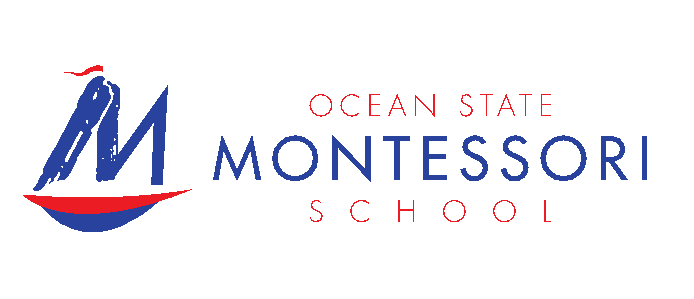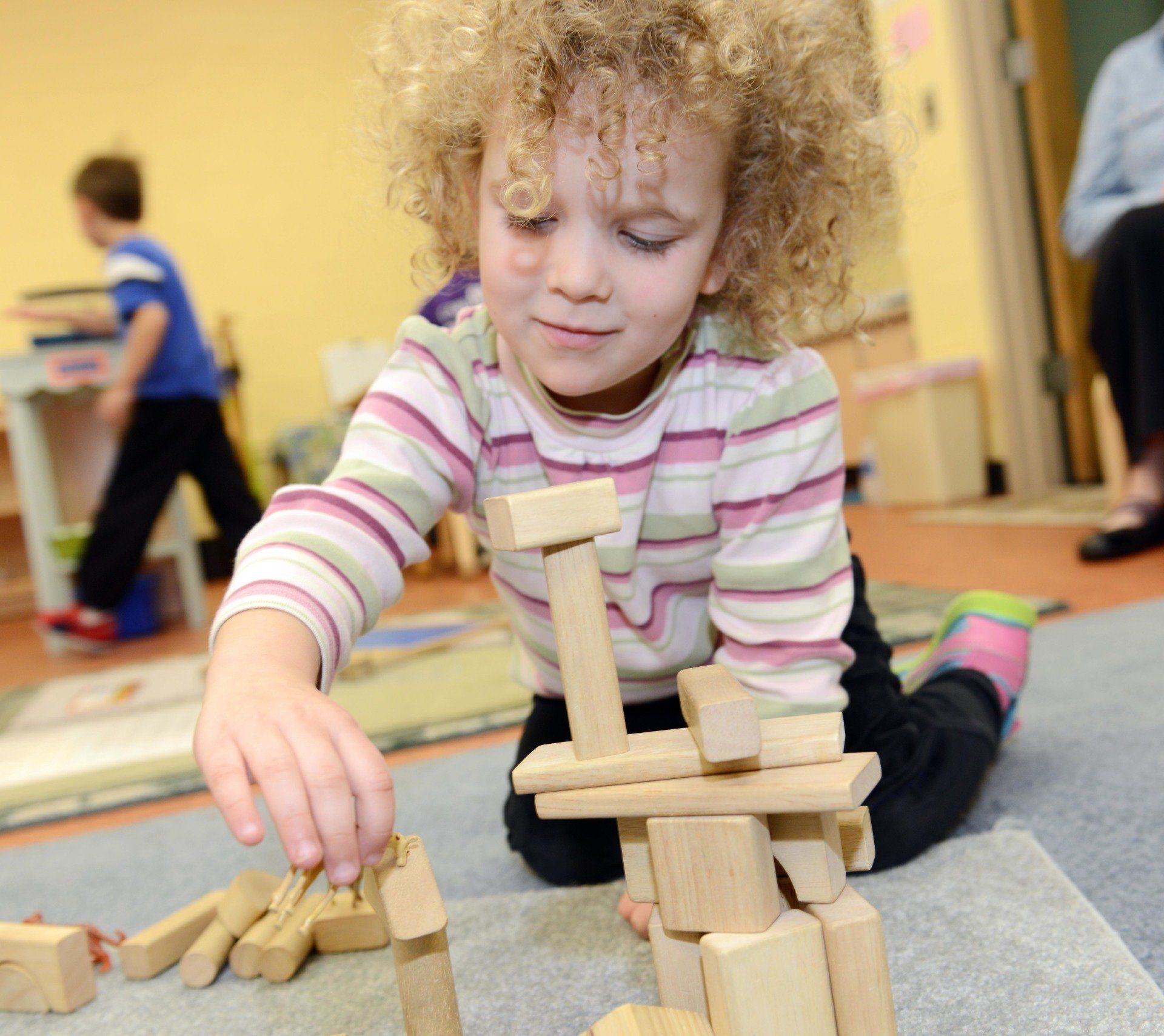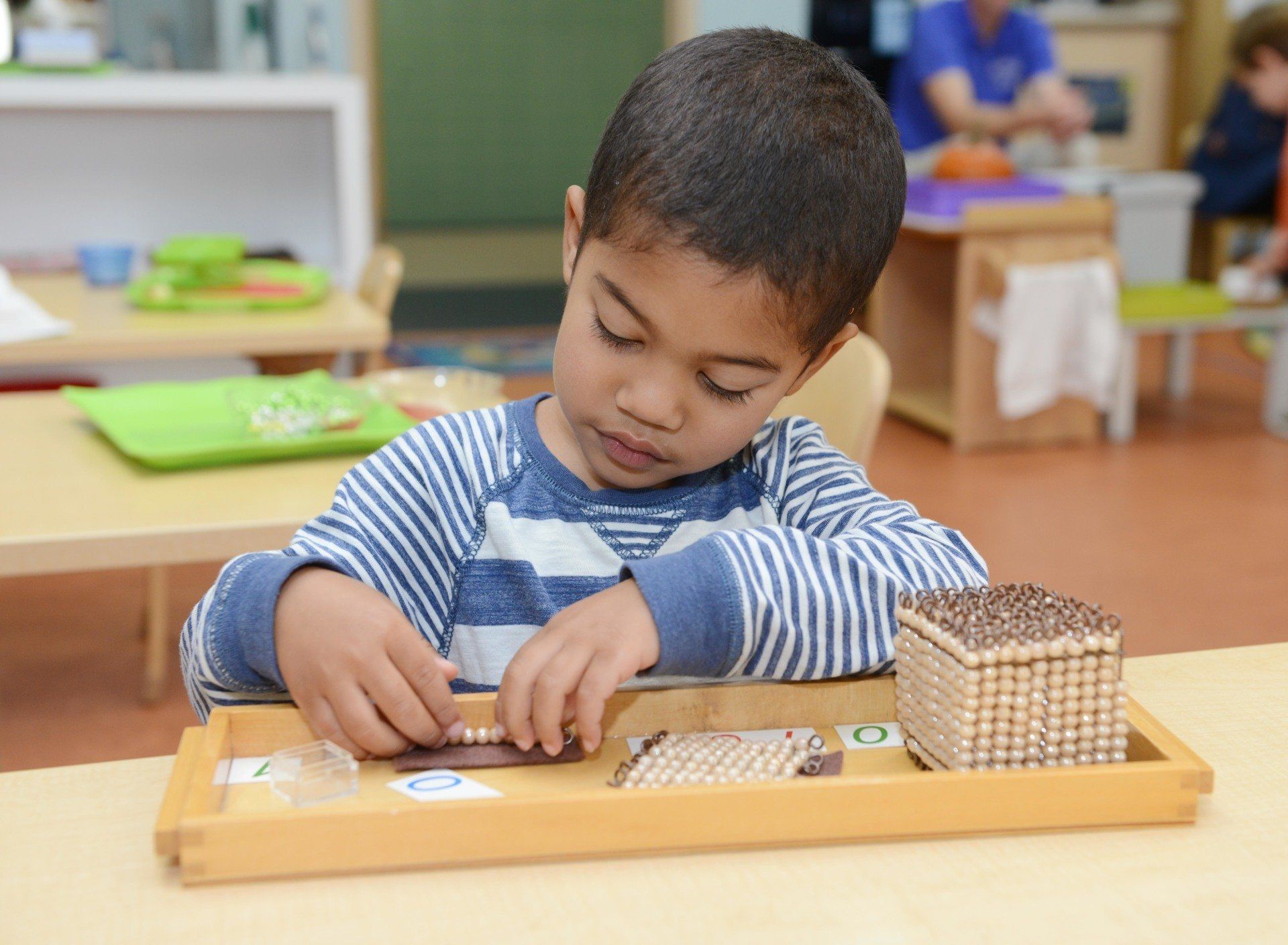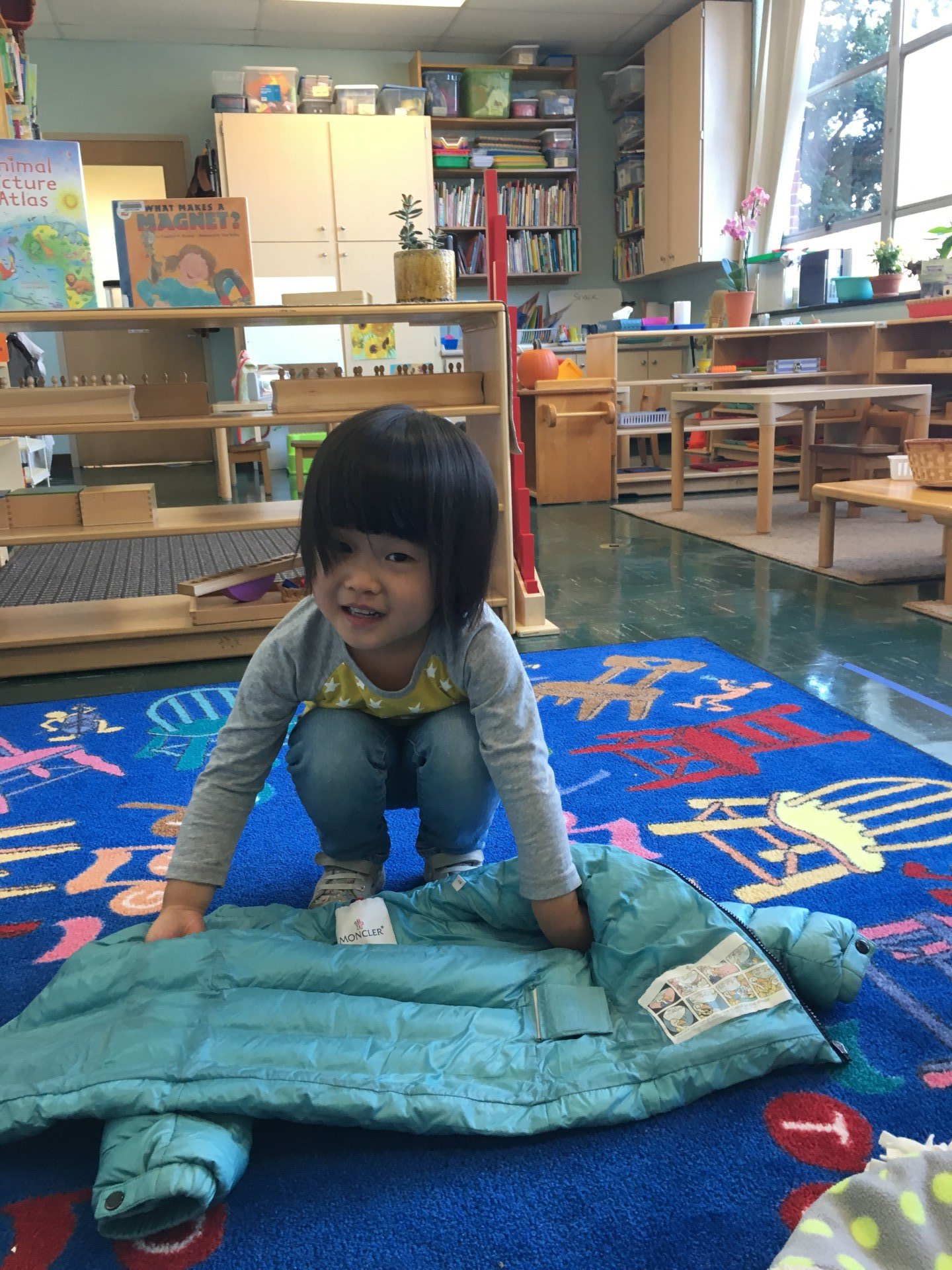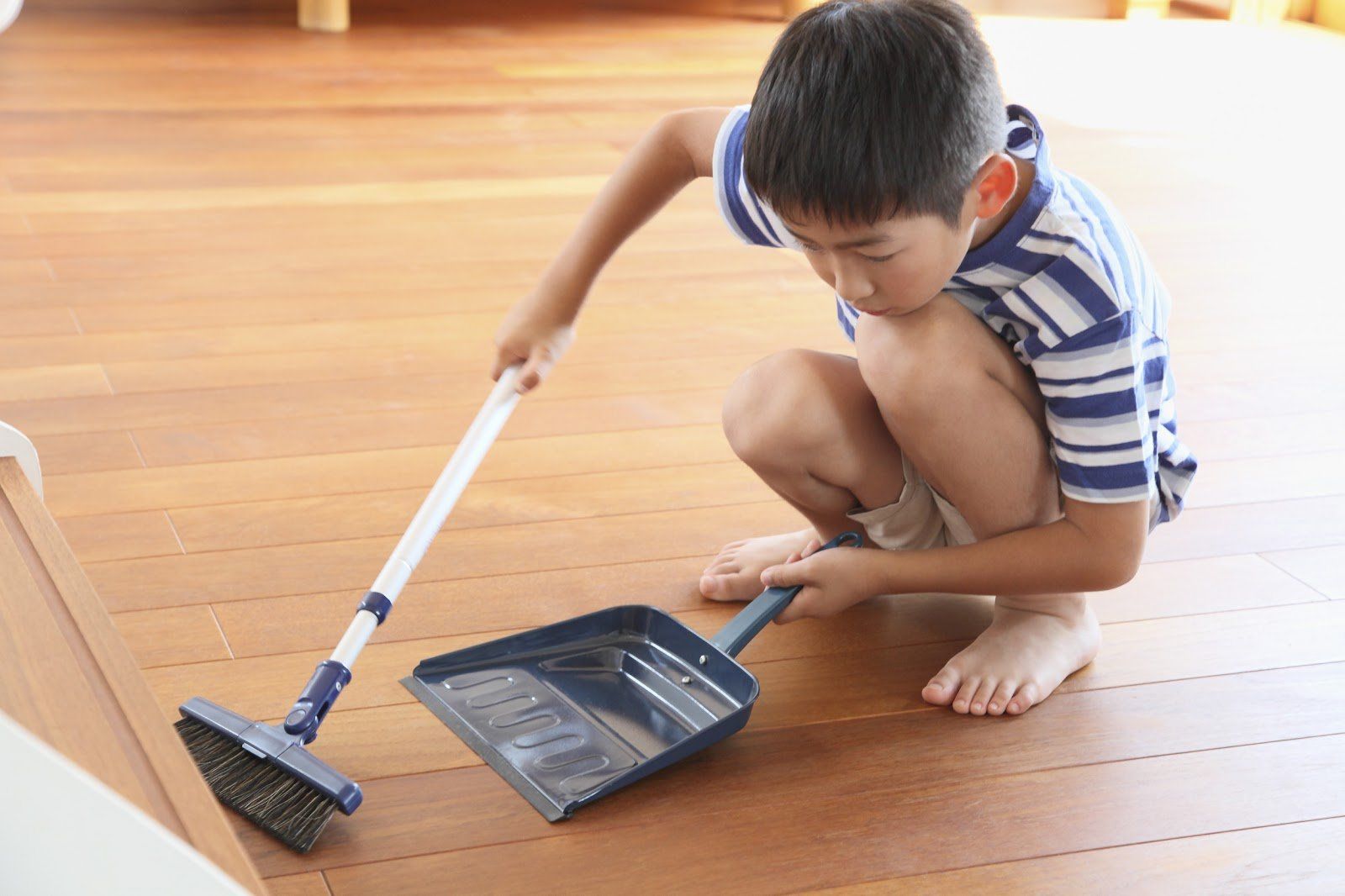What Should You Consider When Selecting a School for your Child?
- By Ocean State Montessori School
- •
- 08 Jan, 2018
- •
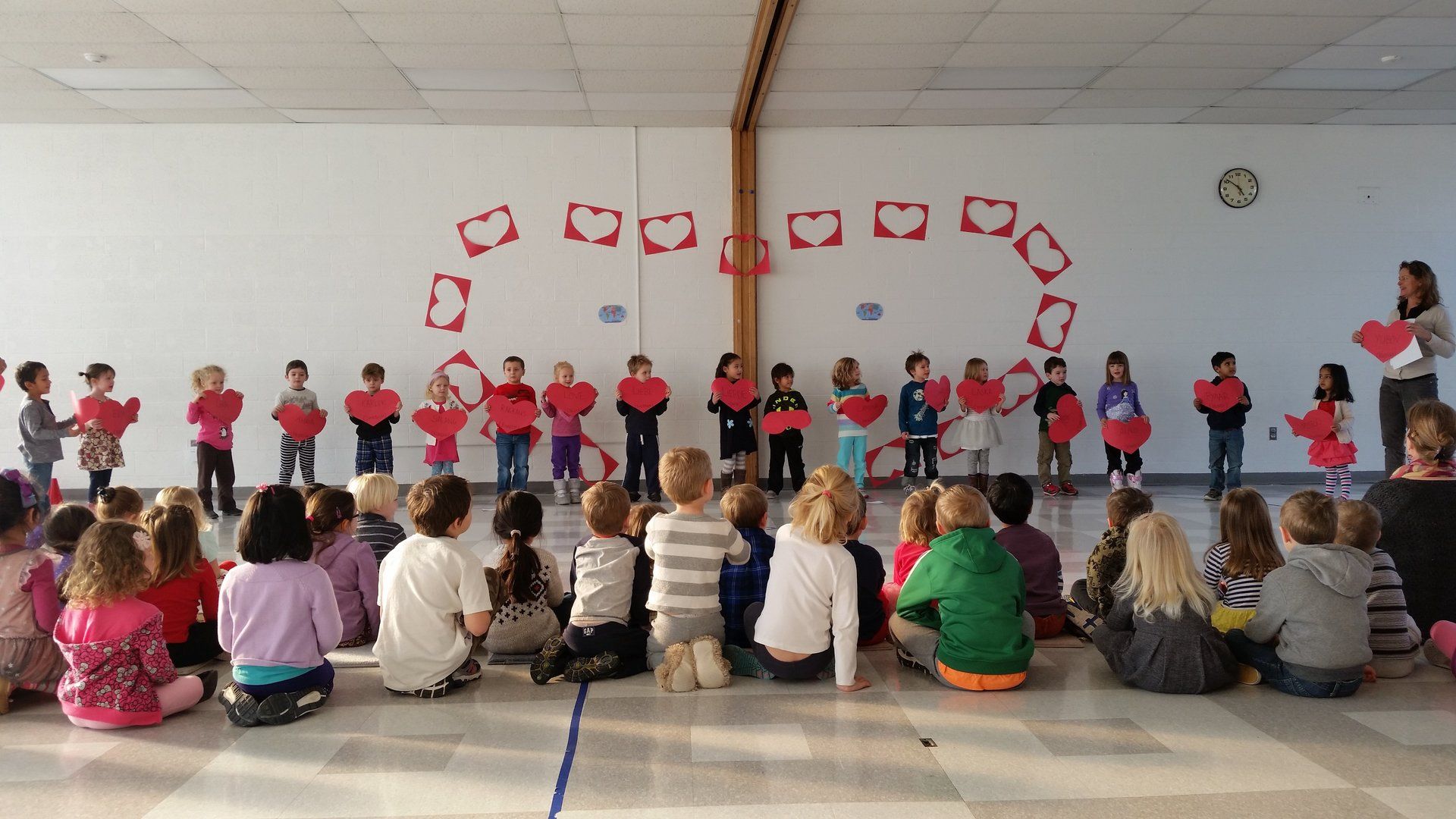
Every child is unique—deciding on your children’s education path is certainly not a “one size fits all” solution. On the contrary, you are their parent, and know your child better than anyone else. You know your children’s strengths, where they can grow, and what kind of educational environment will be best suited for them. But no matter how much you know and love your children, deciding on a school can still be an overwhelming prospect.
Here are a few things you as a parent should consider when selecting a school for your child.
Do Your Homework Before You Visit Any School
It’s important that you read about each of your possible schools carefully before scheduling an in-person visit. We recommend you examine each school’s profiles on review websites, such as GreatSchools.org, Yelp.com and the school’s Facebook page. However, reviews only get you so far—speaking to other parents, checking your local newspaper for articles about area schools, and carefully reviewing promotional materials published by each school will also help you to find out if a school is potentially a good fit for your child. Only when you get a good impression on a school’s academic offerings and reputation should you book a tour of the school.
Ask the Right Questions and Get the Right Answers
Choosing the right school for your child is all about getting proper answers to your top questions. We recommend you have a firm understanding of a school’s mission, their pedagogy and teaching philosophy, average classroom size, approach to disciple, parent community, and their options for extended day programs and enrichment activities.
Pay Attention to the School’s Features
How do the classrooms feel—do they give off a friendly or stern vibe? Are students allowed to move freely around the classrooms or do they sit still at desks? Do the teachers seem engaged and knowledgeable? What credentials do the teachers hold? Are the facilities clean and well maintained? Although you should never judge a book by its cover—the outside of a school may look dreary or dim, but the classrooms inside could be bright and vibrant—you must pay attention to all of these aspects when visiting a potential school for your child. There is no one right way of doing it—only you can determine the correct impressions to these observations.
As a parent, you want your child to have the very best. Part of that means giving them an exceptional education that they will carry with them forever. If you think Ocean State Montessori School would be a good fit for your child, please consider attending our upcoming Open House on January 18th from 9 am-11 am or scheduling a tour. Call 401-434-6913 or email office@oceanstatemontessori.org for more information.
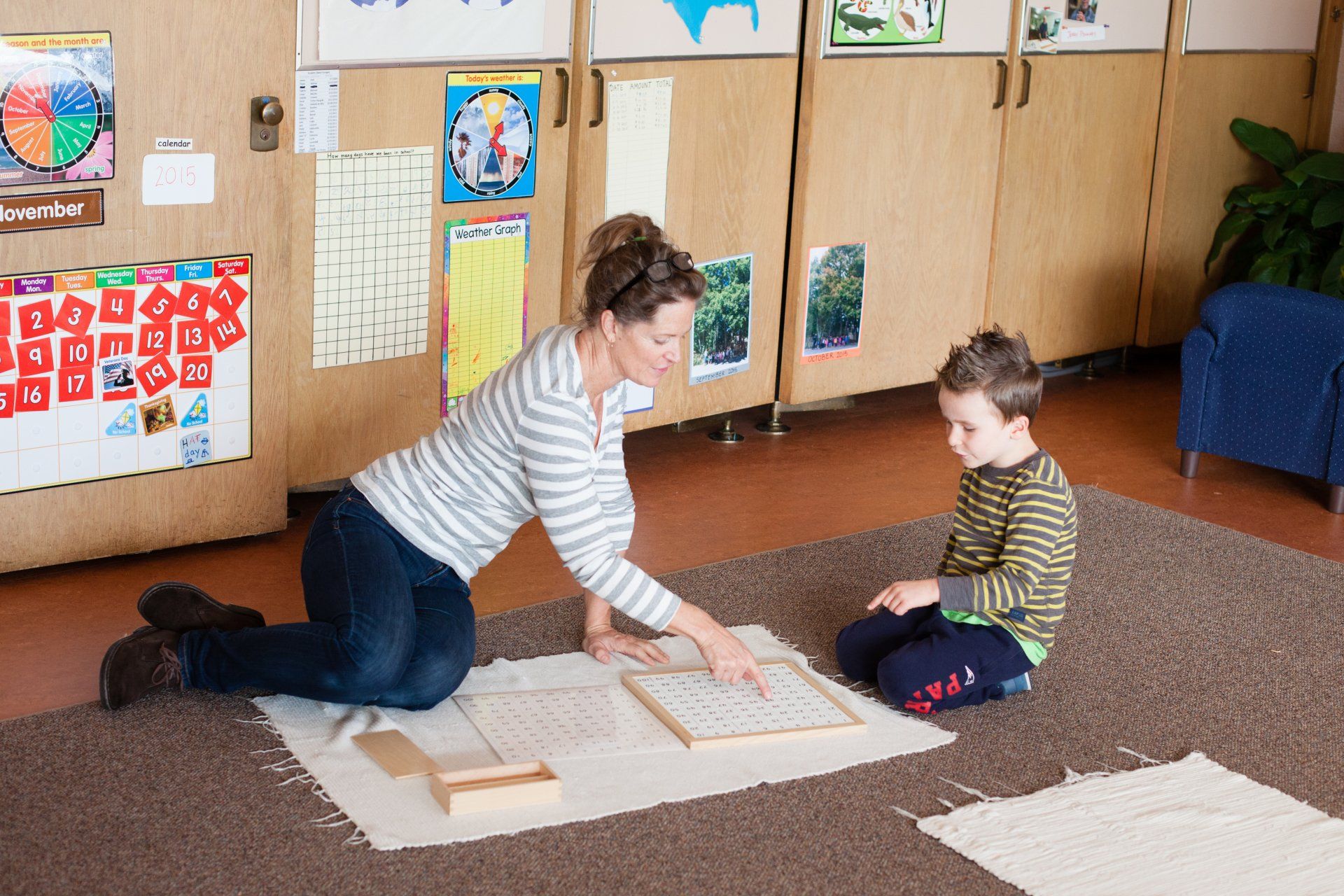
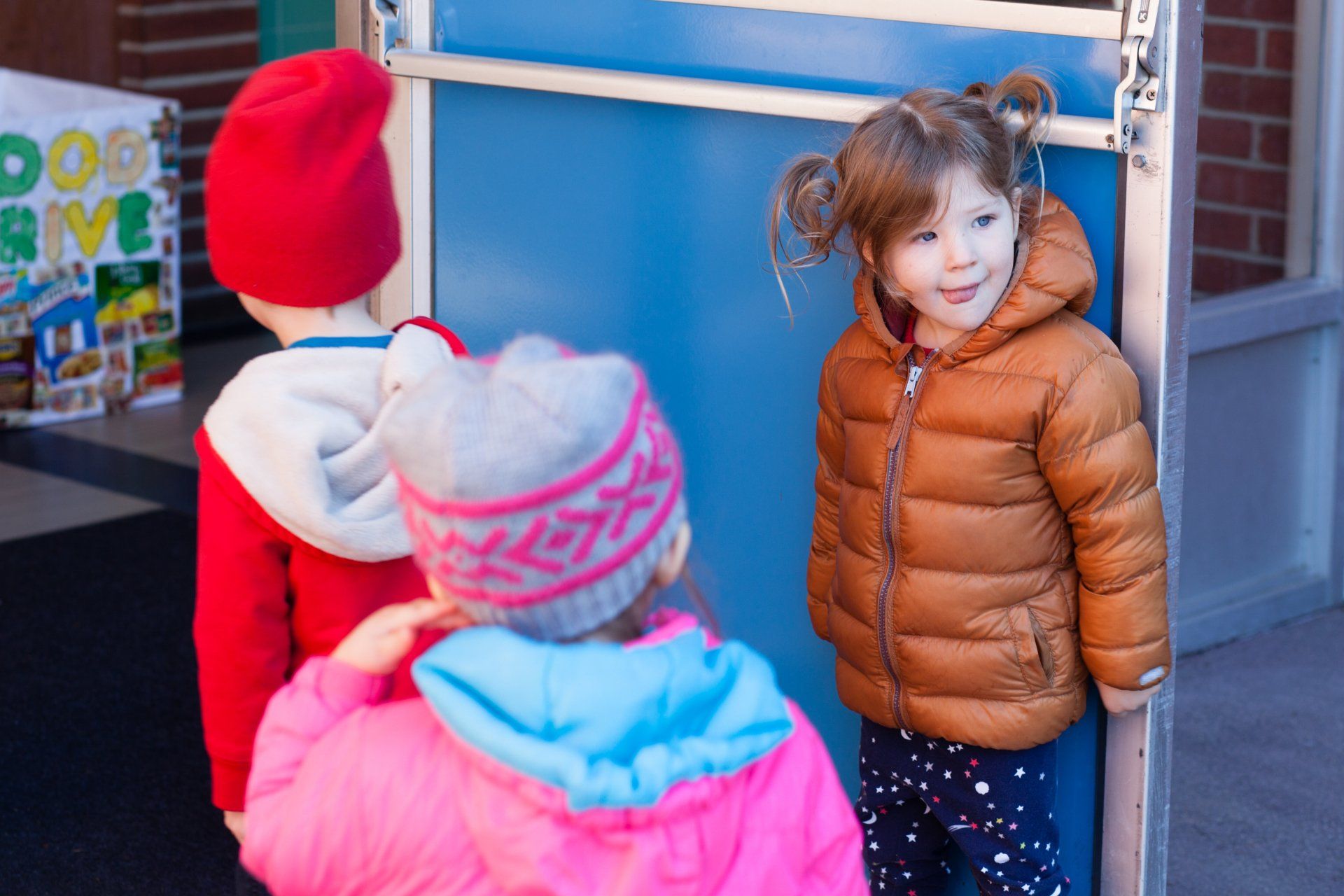
I have labels on all the spice jars in my pantry. I might not use half of those spices, but they look really nice on the shelf, and when I find out someday how to actually use marjoram, I’ll know just where to find it.
We just had our first Parent Education Night of the school year...and we all wore our labels.
My dogs have labels, in case they get lost.
We are a society that labels. We label for identification, for clarity, for advertisement purposes, for bragging rights (“I’m a big sister!” tee shirts).
In a classroom, labeling makes the difference between finding your child’s jacket (that he left on the playground) hanging neatly on his hook rather than having to dig through the lost and found basket. Labeling means that your child will not be frustrated by trying to put her classmate’s size 4 boots on her size 6 feet because they are both the exact same shade of hot pink. Labeling means that everyone who brings in black snow pants from LL Bean will be able to put on the right ones even in the mass confusion that is “getting ready for recess” in the winter time. Labeling means the right Knuffle Bunny goes home with the right child.
So please label everything that you can—coats, hats, sweatshirts, boots, shoes, slippers, maybe even socks, and underwear. But not your kids; we really do know who they are!
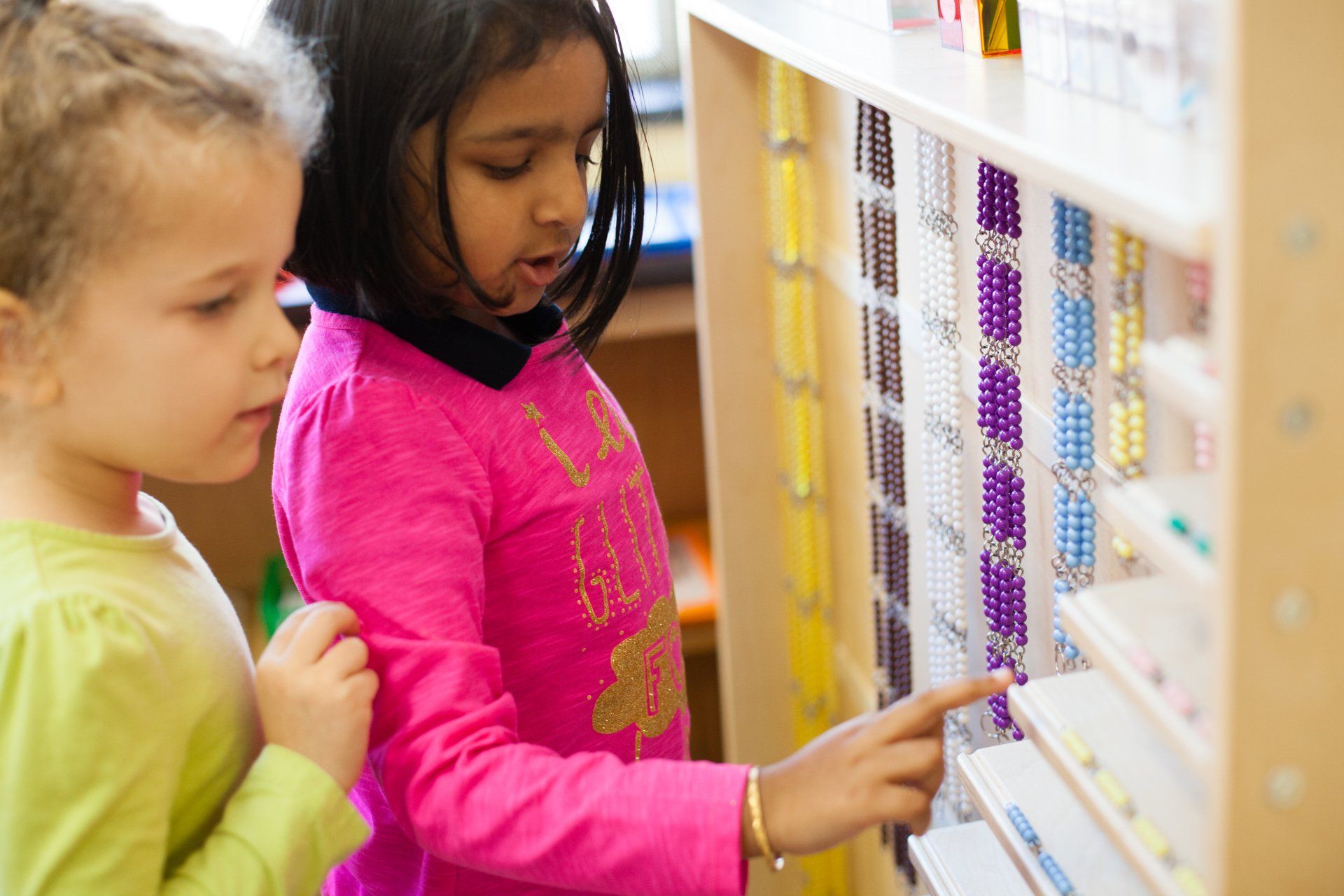
For a child to develop skills to know how they learn best, to have ownership over their own education, to be independently curious, to follow their interests, to seek out information, to challenge themselves, to struggle through challenges, to experiment and fail, and to learn for the sheer love of learning, they must have freedom to explore.
In a Montessori classroom, children must have privileges to move, choose, make mistakes, take their time, have responsibility, problem solve and repeat work. This autonomy is built into the Montessori environment, curriculum and work time. However, independent and self-directed learning is only possible if there are clear parameters and expectations in which the child’s exploration is done. These are the limits -or rules- of safety and respect. Our students are taught to be safe and respectful with themselves, with others, with the materials and with the environment.
“To let the child do as he likes when he has not yet developed any powers of control, is to betray the idea of freedom... Real freedom, instead, is a consequence of development; it is the development of latent guides, aided by education.” —The Absorbent Mind, Maria Montessori
In our community, students have the right to say how they feel but the responsibility to be respectful. Learning the social skills necessary to get their needs met while respecting the feelings of others is a major part of the primary curriculum. This is done mostly through modeling and grace and courtesy lessons. These lessons help the children independently navigate social situations.
The prepared physical environment and the teachers act as the child’s guides in the classroom, helping them understand the limits and reminding them of their benefits. These are the rules of freedom. For example, we push in our chairs to be safe. What would happen if all our chairs were left out? We are not instructing a child which chair to sit in, but we are instructing the child to be a thoughtful member of a group, no matter where they choose to sit. Students are taught to return work to the shelf where it belongs and to make sure it is ready for the next person. What would happen if we didn’t do this?
The Montessori environment is prepared very carefully. The work materials are well ordered and have a purpose. Each item is specifically designed to teach a concept or skill. The work has a built-in control of error, or self-correction, that allows the child to work independently.
Learning to intrinsically follow the rules because it benefits everyone and everything around us is one of the foundations of a classroom that can function cooperatively and peacefully as a harmonious place of learning. If we have the freedom to move, explore, talk, collaborate, teach, discover, make mistakes, take responsibility, help others, accept help, practice patience, delay gratification, and repeat a process as many times as we need, we learn how to do these things intrinsically. In a Montessori classroom, children are not doing these things to get a sticker or toy or to avoid a punishment – they do them because they benefit themselves, others, and the environment in which we live. Freedom within limits teaches children how to become responsible, respectful, confident and independent learners.
“The child who has never learned to work by himself, to set goals for his own acts, or to be the master of his own force of will is recognizable in the adult who lets others guide his will and feels a constant need for approval of others.” — Education and Peace , Maria Montessori
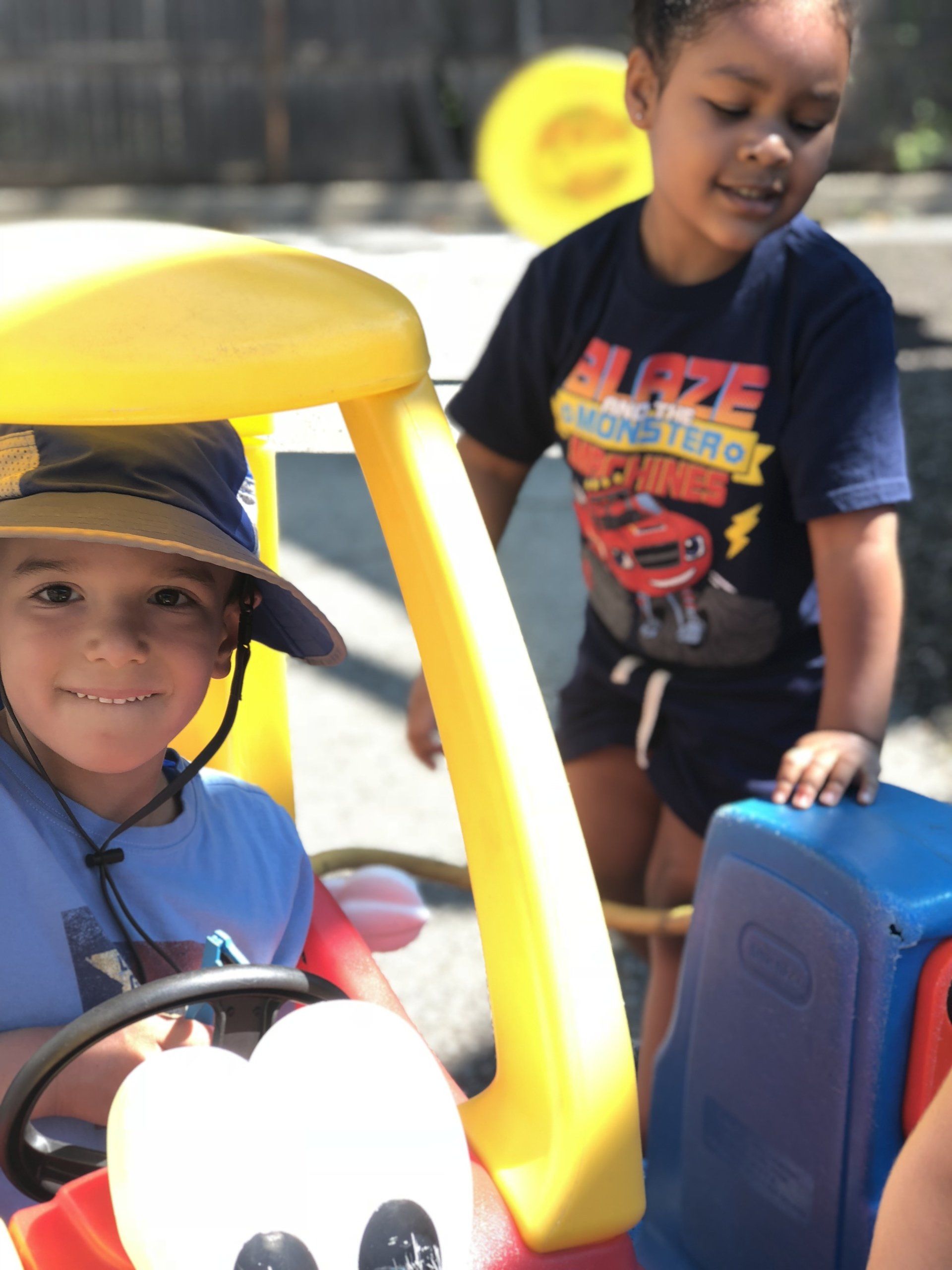
The start of the summer tends to line up with the end of another school year. And you know what that means: summer vacations, planning childcare, scheduled activities and more. Making sure your children have fun in the sun doesn’t mean they can’t learn while they’re doing it! Instead of babysitters and streaming cartoons, here are some fun activities or opportunities to keep your child’s mind geared towards learning year-round.
Gardening
Whether it’s the “I can do it myself!” phase for 0-6 year olds, or the “I can think it myself!” for the 6-12 year olds, gardening is a great opportunity for learning. Not only can they learn how plants grow with a proper mixture of sun, nutrients, and water, but they can also practice personal responsibility and being in charge of watering the garden or houseplants. You can build off of the garden for different crafts or learning: learning about butterflies and drawing or coloring new ones, teach them about vegetables and healthy eating, and more! Fruits & vegetables by the end of the summer is a tasty way to show the results of hard work.
Libraries
Summers are the busy time of year for libraries, as most offer summer programs for children and teens when schools get out. Visiting the Weaver or Riverside libraries can encourage that self-directed learning as they pick out books, help them practice reading, and help with that tricky bridge of abstraction—switching from concrete to abstract thinking. There’s always story times that can be fun for the little ones as well!
Exploration
What child doesn’t want to spend time running around outside when the weather is warm and the skies are clear. Finding nearby parks and trails to explore is that balance for both. Give them the opportunity to feel the breeze and bring a native plants & animals book to see if they can spot them. Parks like the Rose Larisa Memorial Park also offer fun history about Rhode Island.

Looking
for activities that will keep your kids busy on the weekends or during spring breaks? Give their energy some focus by
taking your family on these educational day trips in Southern New England.
There are plenty of great museums bringing history to life, entertaining outings with hands-on learning opportunities, and dazzling artwork displays. Here are just a few educational kids activities your whole family will enjoy.
Museums
Museum of Natural History and Cormack Planetarium
The Museum of Natural History is Rhode Island's only natural history museum and is home to the state's only public planetarium! The museum has served as a unique educational, scientific and cultural resource by offering exciting exhibits and programming that provide ways for children and families to learn about our world and its people.
For the local history buff in your family, the Museum of Work and Culture shares the stories of those living in Rhode Island’s mill towns in the late 19th and 20th centuries. Your kids can experience what life was like through nine immersive exhibits, audio and video presentations, hands-on activities, and more.
Fresh on the heels of reconstruction, The Warwick Center for the Arts aims to unite the community through a variety of arts activities. Exhibits, art camp for kids, and workshops will help bring out your child’s inner Rembrandt.
Outdoor Educational Activities
Looking to get your kids outside? These outdoor educational destinations will have your family learning and having fun under the sun.
Get up close and personal with the animals in one of the oldest zoos in the country at Roger Williams Park Zoo . What started as a small animal collection in 1872 has now grown to the home of more than 160 animals in natural looking surroundings. Other activities include rides and an ever-expanding list of special events.
With a hands-on experiential learning approach, Save The Bay environmental educators introduce families to everything Narragansett Bay has to offer. Your child can discover local marine life through Seal Watch Cruises, Bay Adventure Boat Trips, BayCamp, and the Exploration Center and Aquarium.
Delight your kids with a trip through the Green Animals Topiary Gardens . Featuring over 80 pieces of topiary, your kids can explore living plants sculpted into birds, animals, geometric shapes, and ornamental designs.
To feed
your child’s hunger to learn even more, Ocean State Montessori School fosters
independence, self-esteem, and a lifelong love of learning for children in
preschool through sixth grade. Learn more about providing a strong education
for your child by visiting the Ocean State Montessori School
website
or calling 401-434-6913
.
